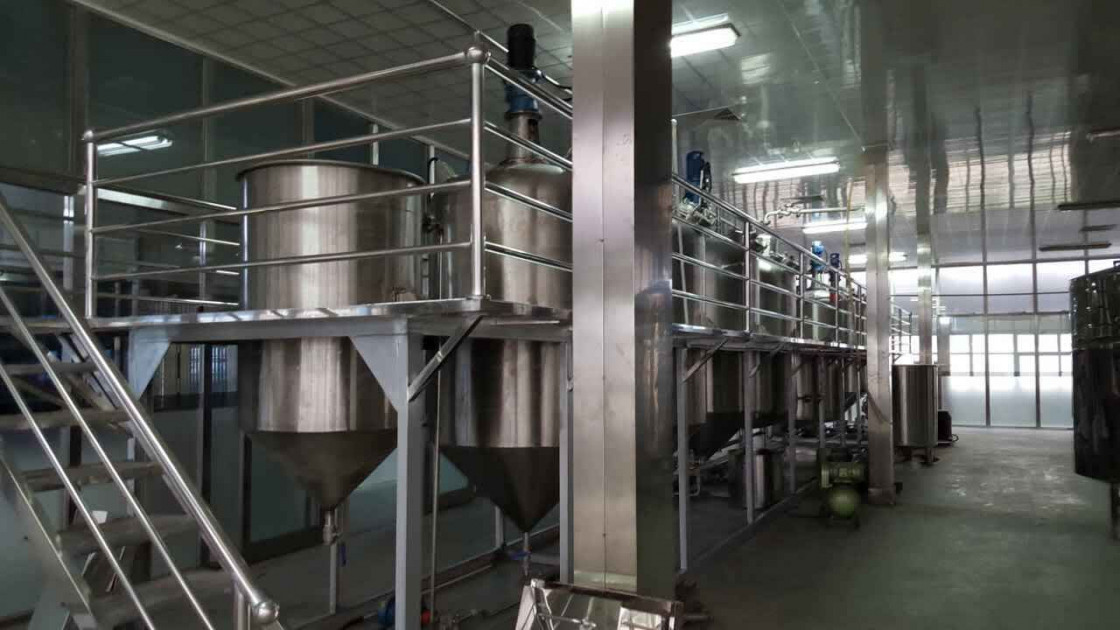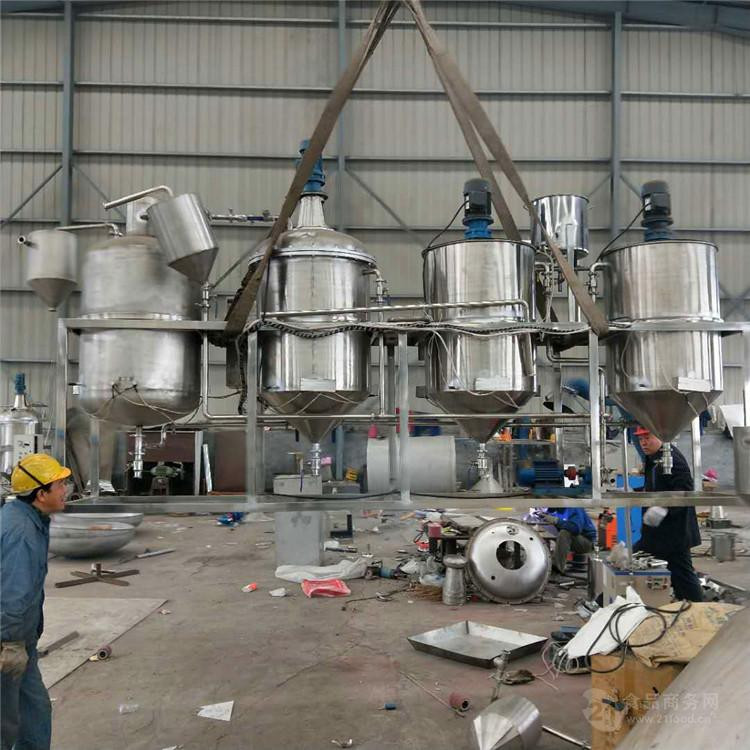Canola Oil Plant
Canola oil plant is a transparent or translucent liquid obtained by pressing rapeseed seeds (rapeseed), with golden or brown color. Rapeseed oil is one of the main edible oils in China, and the third largest vegetable oil in the world, together with soybean oil, sunflower seed oil and palm oil.

It is listed as the world's four greases. Rapeseed has a high oil content, up to 35% - 45%. Its main purpose is to squeeze oil for food. In addition to direct consumption, canola oil plant has a wide range of industrial uses: it can be used to produce margarine and other foods, and as lubricant in the steel casting industry. Generally rapeseed oil is widely used in machinery, rubber, chemical industry, plastics, paint, textile, soap making and medicine. Rapeseed meal protein content is as high as 36%-38%. Its nutritional value is similar to soybean meal. It is a good concentrate feed and widely used in freshwater aquaculture. In addition, in recent years, the rise of biodiesel projects has increased the proportion of rapeseed oil converted into biodiesel year by year.Become an ideal substitute for petroleum and diesel oil.

From the perspective of the flow of rapeseed oil, most rapeseed oil enterprises adopt close processing and close sales. Rapeseed is imported from Anhui, Hubei and Northeast China every year, and the processed rapeseed oil is mainly sold locally; rapeseed and rapeseed oil are imported from Hubei, Anhui and Jiangsu to sell locally in Sichuan and Chongqing every year; rapeseed and rapeseed oil are also imported from other places in Guizhou and Yunnan every year because of insufficient rapeseed production. Spring rapeseed in Inner Mongolia and other places is mainly transferred to Zhejiang area to be processed into rapeseed oil and sold locally. With the growth of sales volume of small package blended oil, the sales scope of rapeseed oil, as one of the main components of blended oil, has an expanding trend. At present, many of the new large-scale press factories are mainly small package products, which are directly oriented to the terminal market.

China's rapeseed market opened earlier. At present, state-owned, private, foreign-funded oil plants and individual oil dealers are free to purchase and sell and compete completely. Some grass-roots grain administrations are commissioned by large oil factories and are also involved in acquisition and short-term storage. Overall, there are several characteristics of rapeseed processing industry in China.First, rapeseed supply time is short, acquisition, processing and sales time is relatively concentrated. Because rapeseed production is seasonal in China, rapeseed processing enterprises generally concentrate on processing rapeseed in June-September. Most small factories only produce rapeseed for 2-3 months, and only large rapeseed processing enterprises can maintain annual production.Second, the distribution of rapeseed processing industry in China is scattered, and the processing plants are small in scale and large in quantity. Different from the trend of large-scale and group development of soybean processing capacity in China, rapeseed processing enterprises in China have developed slowly in recent years, and still maintain the characteristics of large number, small scale, outdated equipment and backward processing technology. Third, the profit of rapeseed oil processing enterprises is small, and many enterprises have low risk resistance ability. In the face of the huge rapeseed processing capacity in China, with the serious reduction of domestic rapeseed supply, rapeseed processing enterprises are facing serious difficulties in raw material supply, especially in small and medium-sized oil factories which rely solely on rapeseed processing for a long time.
Rapeseed oil is the main vegetable oil variety in China. Before 2001, the domestic rapeseed oil production ranked first in the domestic vegetable oil production, and in 2001, its output accounted for 37.9% of the total domestic vegetable oil production. Later, because of the large import and press of soybean in our country.In 2002, the yield of soybean oil surpassed that of rapeseed oil.From the perspective of rapeseed pressing capacity, rapeseed production in China can not meet domestic demand, so rapeseed imports are the main source of rapeseed production in China, and seldom exports. The export volume of rapeseed in China is less than 100,000 tons in most years, the highest in 1999, reaching 550,000 tons. Since 2002, there has been no rapeseed export in China.
China's rapeseed oil production per capita is low. Although rapeseed oil production has been increasing for many years, it is insufficient in production and demand, and there has been a gap in the supply of rapeseed oil. For many years, China has been a net importer of rapeseed oil, and only a small amount of rapeseed oil is exported every year. Since 2005/2006, China's rapeseed oil exports began to exceed imports, becoming a net exporter of rapeseed oil. The main reason is that the consumption of rapeseed oil in the biodiesel industry in EU countries has increased sharply. The price of rapeseed oil in EU is much higher than that in the world market, and the demand for imports has also increased significantly.Since the mid-1990s, vegetable oil import quota management has been implemented in China. After 2006, the tariff quota has been abolished and only 9% of the single import tariff has been levied. Since 2001, because the CIF price of international rapeseed oil is higher than that of domestic rapeseed oil, the import volume of rapeseed oil has been small, and rapeseed oil import has gradually changed to rapeseed raw material import.